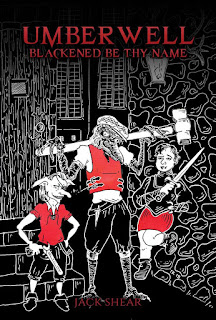I reject the notion that there is one right way to do a setting book. Those making the argument in favor of a more terse or utilitarian style often point to the bloat found in setting books by the major publishers. While I won't deny there is often a verbiage problem with those books, I'd also suggest that they are an easy target for the people making these sorts of arguments, i.e. members of a community to some degree defined by its opposition or at least contrast to major publishers' ways. While I'm sure not everyone is a fan for a number of reasons, I've never seen anyone cite The Tekumel Sourcebook volumes or Glorantha books as examples of overwriting.
There are two thoughts I have about setting books that (I think) better get to the truth of the situation. The most obvious one first: People like or want different things. Some people want to be transported, others just want prompts or aids. The second thought is that settings should be written in such a way as to make the setting more interesting, realized, and playable. Any verbiage not to this end is excess, but also any brevity that undermines those elements counts as a deficit.
All that preamble to cite an example of something that does it right, the third of such supplements to hit the mark, as I see it, by Jack Shear: Umberwell: Blackened Be Thy Name. Umberwell is one of a handful of 19th Century-ish fantasy settings in terms of technology, though the vibe is a bit Elizabethan underworld, a bit Dickensian nightmare, and a whole lot New Weird. It is also, as are all of Jack's settings, eminently integrated in a D&D environment, embracing the whole Star Wars cantina array of races and classes. it does this all in 134 pages.
The city has a European feel. Its island arrangement recalls Venice, and its character recalls London (or versions of London like New Crobuzon). It might be a bit Weimar Berlin in its decadence. There are bits of New Crobuzon evident, certainly, a bit of Sharn perhaps, and I perhaps flatter myself that I see some glimmers of the City in a couple of places, but it is its own thing.
It succeeds where Eberron, to my mind, fails. Eberron's vague, 21st Century Americanness skims across the top but does not penetrate the weird and Medievalist elements. Eberron is to genuine pulp sensibility what a guy sporting a fedora in an Instagram pic is to Sam Spade. Umberwell feels authentic (for lack of a better word), but never in a way that sacrifices it's fundamental D&Dness.
It is not complete, in the sense that it does not try to give you the totality of a world, nor does it attempt to. If any given Forgotten Realms splat is like a history or geography book, and Weird Adventures a travel guide, Umberwell is like a travel essay or TV show. It is painted in impressionistic strokes and focuses its efforts on the things that directly confront its visitors (i.e. the players and DM), only filling in other details as needed to color and accentuate those.
And yes, I'm thanked in the book, so my review is assuredly unbiased, but if anything I've written sounds interesting to you, so should check it out, then tell me I'm wrong.
21 minutes ago






No comments:
Post a Comment